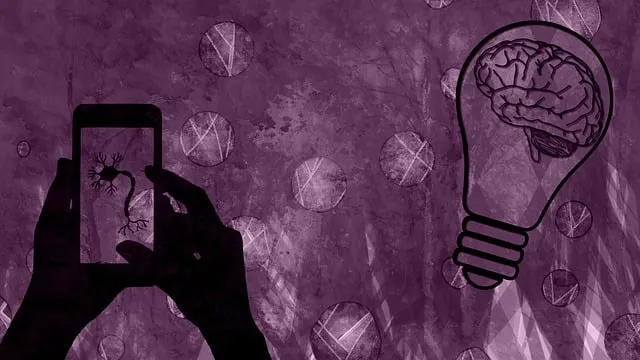Aurora Kaiser Permanente psychiatry offers comprehensive Crisis Intervention Team (CIT) training, combining theoretical knowledge with practical skills for effective crisis management. Their programs focus on cultural competency, evidence-based techniques like cognitive behavioral therapy and trauma-informed care, and continuous support through collaborative exercises. Trained CIT members gain empathy, emotional regulation strategies, and self-care practices to de-escalate high-risk situations, enhance community well-being, and promote individual resilience in mental health crises. This holistic approach not only empowers healthcare professionals but also fosters a culture of proactive care within communities.
Crisis intervention teams (CITs) play a pivotal role in mental health care, providing immediate support during crises. This article delves into the significance of these teams and explores how comprehensive training programs, such as those offered by Aurora Kaiser Permanente Psychiatry, equip professionals with essential skills. We examine key components, practical strategies, and the profound impact of trained CITs on community well-being, highlighting best practices for effective crisis response.
- Understanding Crisis Intervention Teams: A Vital Role in Mental Health Care
- Aurora Kaiser Permanente Psychiatry: Setting the Standard for Training
- Key Components of Effective Crisis Intervention Team Training Programs
- Practical Skills and Strategies for Real-World Application
- The Impact and Benefits of Trained Crisis Response Teams
Understanding Crisis Intervention Teams: A Vital Role in Mental Health Care

Crisis Intervention Teams (CITs) play a vital role in mental health care, offering immediate support and guidance during acute crises. These teams, often composed of healthcare professionals, first responders, and community members, are trained to de-escalate high-risk situations, providing essential assistance when individuals face severe emotional distress or suicidal ideation. At Aurora Kaiser Permanente psychiatry, CIT training programs have gained significant importance, equipping participants with the skills to recognize warning signs and intervene effectively.
Through comprehensive Mental Health Education Programs Design, these training sessions delve into various aspects of crisis management, including Mental Wellness Journaling Exercise Guidance as a tool for emotional regulation. By fostering better understanding and empathy, CIT members are empowered to offer tailored support, promoting recovery and resilience in individuals facing mental health challenges. Additionally, Self-Care Routine Development for Better Mental Health is emphasized, recognizing the importance of personal well-being in providing sustained crisis intervention.
Aurora Kaiser Permanente Psychiatry: Setting the Standard for Training

Aurora Kaiser Permanente Psychiatry has established itself as a leader in crisis intervention team (CIT) training programs. Their comprehensive approach ensures healthcare professionals are equipped with the latest techniques for managing and supporting individuals in mental health crises. The program goes beyond traditional training, offering practical strategies and skills that promote effective coping. Participants gain insights into various mental wellness coaching programs development, enabling them to provide personalized guidance to those facing emotional challenges.
Through interactive sessions, they emphasize the importance of self-care and mental wellness journaling exercises. This holistic approach prepares CIT members not only to react but also to proactively enhance community mental health. By setting the standard for training, Aurora Kaiser Permanente Psychiatry empowers professionals to make a significant impact on the lives of those facing crisis, fostering a culture of support and resilience.
Key Components of Effective Crisis Intervention Team Training Programs

Effective crisis intervention team training programs are multifaceted and tailored to equip healthcare providers with the skills needed in high-pressure situations. At Aurora Kaiser Permanente psychiatry, for instance, these programs typically incorporate a blend of theoretical knowledge, practical simulations, and ongoing support. The core components include Cultural Competency Training, ensuring teams understand and navigate diverse cultural backgrounds and perspectives during crises. This is crucial for providing respectful and effective care to all individuals.
Incorporating Crisis Intervention Guidance from recognized models, such as cognitive behavioral techniques or trauma-informed care, equips providers with evidence-based strategies to help individuals stabilize and move towards emotional healing processes. Regular team exercises, role-playing scenarios, and debriefings foster a collaborative environment where members learn from one another’s experiences, enhancing their overall crisis response capabilities.
Practical Skills and Strategies for Real-World Application

Aurora Kaiser Permanente’s psychiatry team training programs equip participants with practical skills and strategies tailored for real-world application. Beyond theoretical knowledge, these courses focus on enhancing problem-solving abilities, fostering effective communication, and cultivating empathy – crucial elements in crisis intervention. Trainees learn to navigate complex situations with confidence, leveraging techniques like active listening and de-escalation strategies to support individuals experiencing emotional distress or trauma.
The programs also emphasize the importance of self-care and inner strength development, recognizing that supporting others through crises demands resilience. By integrating positive thinking practices and trauma support services into their training, Aurora Kaiser Permanente prepares its staff to offer compassionate, effective care in even the most challenging circumstances.
The Impact and Benefits of Trained Crisis Response Teams

Trained crisis response teams, like those offered by Aurora Kaiser Permanente’s psychiatry department, significantly enhance community well-being and individual resilience. These programs equip individuals with the skills to recognize early warning signs of mental health crises, fostering a supportive environment that encourages proactive intervention. By promoting emotional regulation and mood management techniques, such initiatives empower participants to effectively navigate challenging situations before they escalate.
The benefits extend beyond immediate crisis resolution. Regular training in depression prevention strategies, for instance, can help individuals develop coping mechanisms that prevent relapses and promote overall mental health. This proactive approach not only reduces the burden on emergency services but also fosters a culture of care and support within communities.
Aurora Kaiser Permanente’s pioneering efforts in psychiatry highlight the transformative power of comprehensive crisis intervention team training. By equipping healthcare professionals with practical skills and strategies, these programs ensure a swift and effective response during mental health crises. The benefits extend far beyond individual patients, fostering safer communities and enhanced support systems for those facing emotional distress. Through continuous evaluation and adaptation, crisis intervention team training remains a dynamic force, addressing evolving challenges in mental health care.






